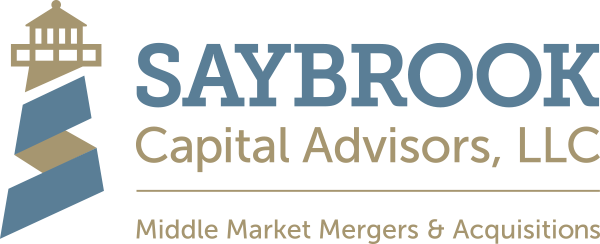Business Valuation Multiples Move Higher
/FEBRUARY 2018
It is a terrific time to be selling a business! Business valuation multiples continue to push upward, defying expectations. According to GF Data,® Q4 2017 completed transaction valuation multiples averaged 8.1x a company's trailing-twelve-month's Adjusted EBTIDA2 on deals with an Enterprise Value1 of $10 million to $250 million. The average valuation multiple for transactions completed in 2017 was 7.4x Adjusted EBTIDA (see chart A). From an industry perspective, average valuation multiples were: manufacturing 6.9x, business services 7.5x, healthcare services 7.6x, distribution 7.6x and technology 10.2x. While the number of completed middle-market deals in 2017 was down from the comparable 2016 period, demand for companies with above average financial performance remains very strong. This demand, in conjunction with the availability and use of higher leverage (debt) by buyers to finance transactions, is largely responsible for the high valuation multiples.
CHART A:
Valuation Multiples by Transaction Size
Historically, valuation multiples vary by a company's Adjusted EBITDA level (see chart B). The greater the Adjusted EBITDA, the higher the valuation multiple. 2017 deals also show the continued assertion of the "quality premium." This is the reward in valuation companies receive for above-average financial performance. Per GF Data,® historically the quality premium has been approximately ten percent. In 2017 it was 20 percent.
CHART B:
Valuation Multiples by EBITDA Size
Saybrook Capital Advisors (SCA) sees continued strong merger & acquisition activity with a healthy pool of strategic and financial buyers. When strategic buyers pay more for a company than a financial buyer, the premium being paid is typically 5-15% according to the 2017 Pepperdine Capital Markets Report. While a growing economy and ample debt financing typically bodes well for owners seeking a sale or recapitalization event, the current seller's market is getting long in the tooth and could close abruptly should the stock market crash or interest rates rise significantly. Owners should be asking themselves whether this highly attractive seller's window is one they and their family can afford to miss.
Saybrook Capital Advisors has a strong understanding of how to maximize your company's value and position it to the buyer groups that will best accomplish your goals. Properly preparing your company for sale and the use of a SCA's proven transaction process are the keys to achieving the best results. Please contact Saybrook Capital Advisors for a confidential discussion of valuation multiples specific to your industry and company's characteristics.
Enterprise Value is the market value of the company (equity value plus the value of debt, minus cash). Enterprise value for private companies is typically calculated by applying a valuation multiple to Adjusted EBITDA. For example, a company with $3 million in Adjusted EBITDA and a valuation multiple of 8.1x could have an Enterprise Value of $24.3 million.
Adjusted EBITDA (AE) is an important key performance indicator for business owners to understand because it is a critical number used in the valuation of a privately-owned company. AE represents earnings before interest, taxes, depreciation and amortization adjusted to exclude one-time, non-recurring and extraordinary expenses, and to adjust owner compensation plus other expenses to market rates. AE is often times referred to as “normalized earnings.”



